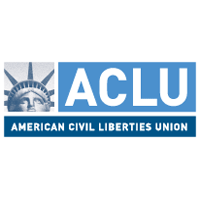Facing criticism over Charlottesville suit, ACLU won't defend armed protesters

The American Civil Liberties Union won’t defend hate groups’ right to march when they seek to bring firearms with them, a position announced in the wake of last Saturday's violence in Charlottesville, Virginia.
ACLU executive director Anthony Romero tells the Wall Street Journal (sub. req.) that the group will consider potential violence before representing clients on First Amendment issues.
“If a protest group insists, ‘No, we want to be able to carry loaded firearms,’ well, we don’t have to represent them. They can find someone else,” Romero said.
Romero said gun-toting protesters can suppress speech by intimidation, and noted that the group’s national board had adopted a policy in 2015 supporting reasonable regulation of firearms.
Romero’s statements follow criticism of the group for a suit filed by its Virginia affiliate. The Virginia group had sued on behalf of an organizer of the Charlottesville rally who wanted to protest the removal of a statue of Confederate Gen. Robert E. Lee, the New York Times explains in its story on the controversy.
The ACLU of Virginia had argued the rally should be held at a park associated with Lee, rather than at a larger park a mile away, as the city has sought. A federal judge ruled for the ACLU.
The ACLU on Thursday issued a statement on Twitter about its First Amendment stance. “The First Amendment absolutely does not protect white supremacists seeking to incite or engage in violence,” the statement said in part.
“We make decisions on whom we’ll represent and in what context on a case-by-case basis. The horrible events in Charlottesville last weekend will certainly inform those decisions going forward.”
The ACLU has a long history of defending the First Amendment rights of all groups, even those whose views the group abhors, on the theory that democracy is stronger when divergent views are expressed, the group explained on its website.
The ACLU had represented neo-Nazis who wanted to stage a 1978 protest in Skokie, Illinois, where thousands of Holocaust survivors lived. Like the Charlottesville controversy, the Skokie case created divisions within the organization.
For those who have been asking about the statement from our colleagues in California: pic.twitter.com/5q5Nk2kXkA
— ACLU National (@ACLU) August 17, 2017



